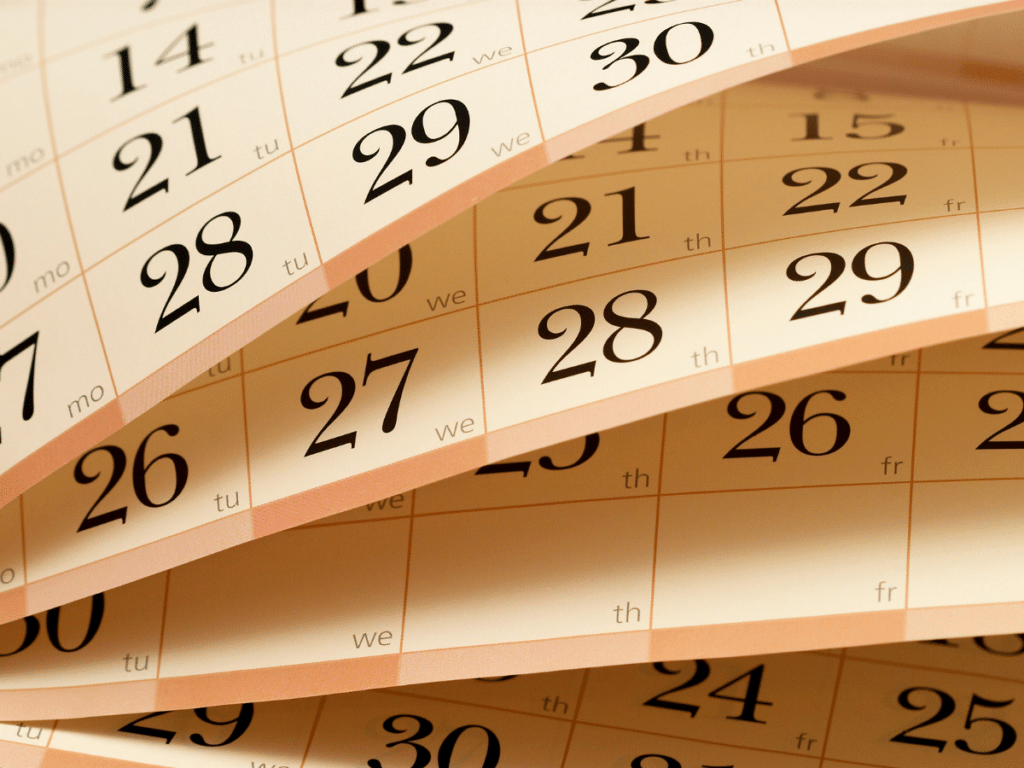So you want to talk about counting the Omer. Why do we count each day? Is it relevant to our daily life? What’s the point?
For starters, the Omer is a 49-day period between the holidays of Passover and Shavuot. Counting the Omer reminds us of the link between celebrating the Jewish people’s miraculous exodus from Egypt (Passover) and commemorating the giving of the Torah on Mount Sinai (Shavuot). We are reminded that Passover started the process of redemption, but that it was not complete until we received the Torah.
Technically speaking, the commandment of counting the Omer comes directly from the Torah. Leviticus commands Jews to count each day of the Omer, from the second night of Passover until the day before Shavuot. We recite a prayer acknowledging the day of the omer in days and weeks. For example, on the 18th day, one would say: “Today is the 18th day, which is two weeks and four days of the Omer.”
But, what can we learn from counting each day?
We asked Kylie Unell, who is the host of 49 Days to Stretch My Soul, a daily podcast where she finds meaning in each day of the Omer in hopes of “stretching her soul.”
According to Unell, the point of counting the Omer isn’t about ticking off a box or flipping your calendar page. It’s not just about fulfilling a commandment.
It’s about growth, Unell explained.
“The Jewish calendar gives us this unique opportunity to focus on growth and work on ourselves,” she said, speaking specifically about the Kabbalistic (Jewish mystical) interpretation of the Omer.
Spiritual interpretations of the Omer
Kabbalah, or mystical Judaism, teaches that God revealed attributes that interact with each other and the world. These are called sefirot. Just as human beings are made up of various internal traits or tendencies of personality, all of which interact with one another, God is made up of various attributes.
Each week and day of the Omer corresponds to a different divine emanation and value — those are the attributes that Unell is referring to.
At first, the concept of sefirot might feel intimidating, but it’s really not as overwhelming as it might sound, Unell said.
The 7 weekly attributes are:
- Chesed: loving kindness
- Gevurah: strength, discipline, judgment
- Tiferet: beauty, harmony, balance, compassion
- Netzach: endurance
- Hod: humility, acknowledgement, sincerity
- Yesod: foundation, bonding, beginning
- Malchut: sovereignty, leadership
In each episode of her podcast, Unell explores a different attribute.
“Every week (of the Omer), we’re given the opportunity to work on ourselves in a particular area of our lives,” she explained. “Each week, I read something, do something and then I’ll talk to somebody whose work relates to that week’s attribute.”
Unell uses her episode on “Talking Tiferet (balance and harmony)” as an example.
“In this episode I talked to a New York City ballet dancer who is incredible. The way she talked about beauty and harmony and brought God into it was so profound,” she explained. “It brought this attribute to life for me.”
How can you connect with the spiritual attributes of the Omer?

There are tons of unique ways to count the Omer, and even more ways to connect to the spiritual attributes.
“It’s really about figuring out what you connect to,” Unell said. In her books, there’s no ‘right’ or ‘wrong’ way to find meaning in counting the Omer.
“God doesn’t tell us how to make (the Omer) meaningful. That’s where we get to be creative. We get to make it meaningful for ourselves and figure out how it is that we relate.”
If you’re a podcast person, one easy way to count the Omer is by listening to Unell’s podcast while you do the dishes or commute to work.
Say you love music, you could make a Sefirot playlist. “I bet there’s a John Mayer song that relates to every Sefira,” Unell said laughingly. “Or you could watch a movie every week that connects to a single attribute.”
Day 1: 1. Chesed within Chesed: (self love) Soulmate by Lizzo
— Jenna Stein Turow (@rabbijenna) April 24, 2022
Focus on self-awareness and growth
Even if you are not counting the Omer this year, you can still take this period of time to be creative and focus on self-growth, advised Unell.
“I see this as a real opportunity to work on personal aspects of ourselves, and how we show up in the world.”
Whether it’s through the attribute of discipline (gevurah), harmony (tiferet) or humility (hod), find the aspect you relate to or want to work on the most. Then, you can think, write, speak or reflect on how that manifests in your life.
“Just find the thing you relate to and have fun with it,” Unell said. “It doesn’t have to be divine, you don’t have to connect it to God. It’s going to be your own personal work.”
Start now
You still have time to start counting the Omer. There’s no such thing as too late, Unell encouraged.
Some of Unell’s podcast episodes are under 5 minutes, so if you haven’t started counting yet… Hey, you can technically binge listen to the whole season and still connect to all the attributes.
How have you been counting the Omer? Let us know on Instagram, Twitter, and TikTok!


